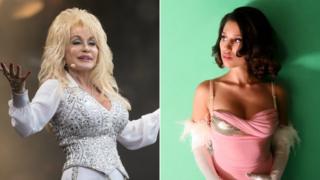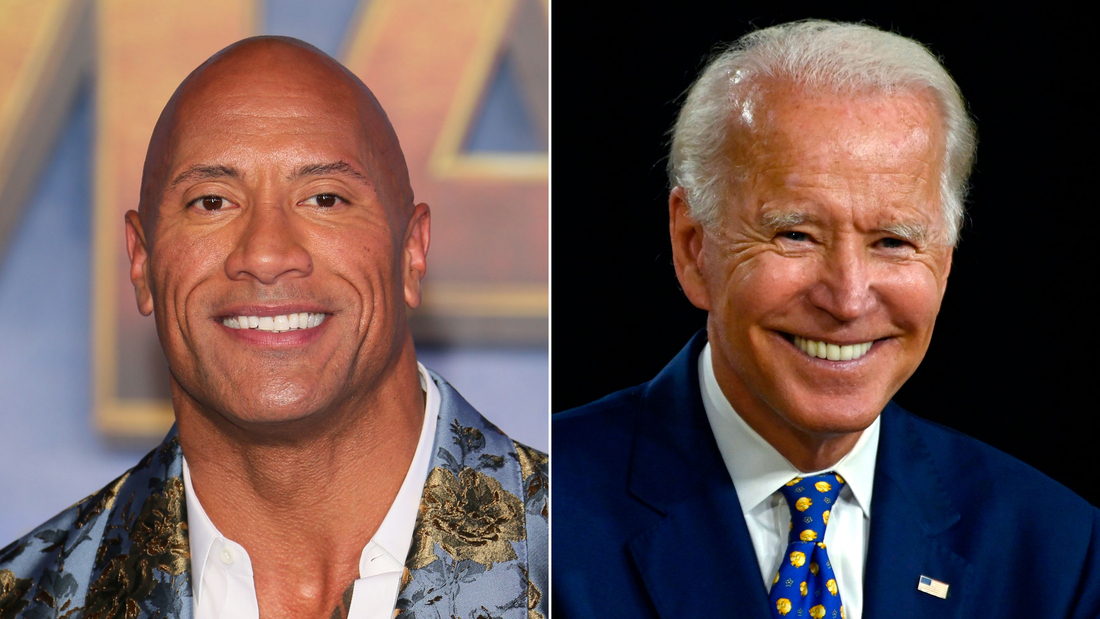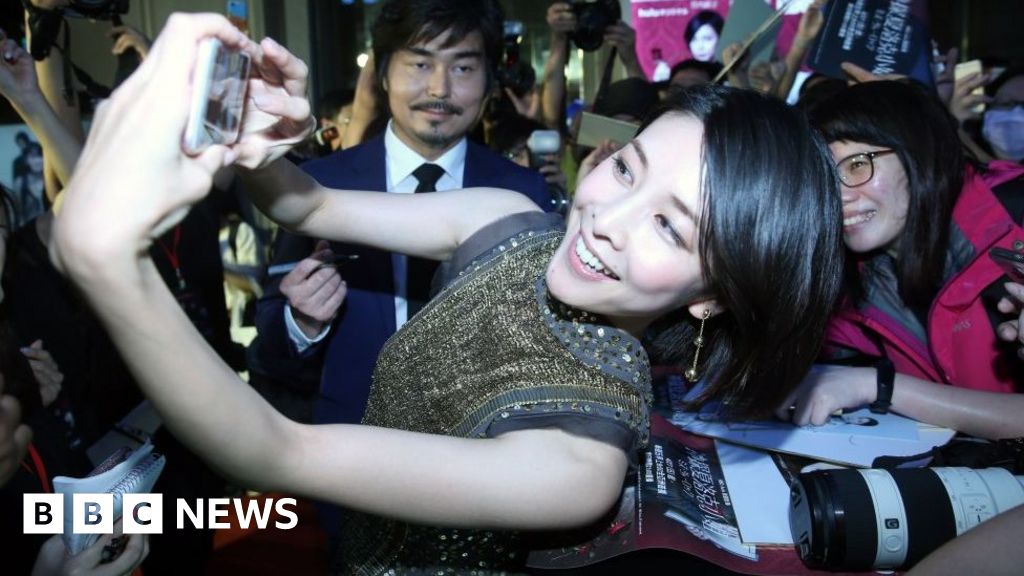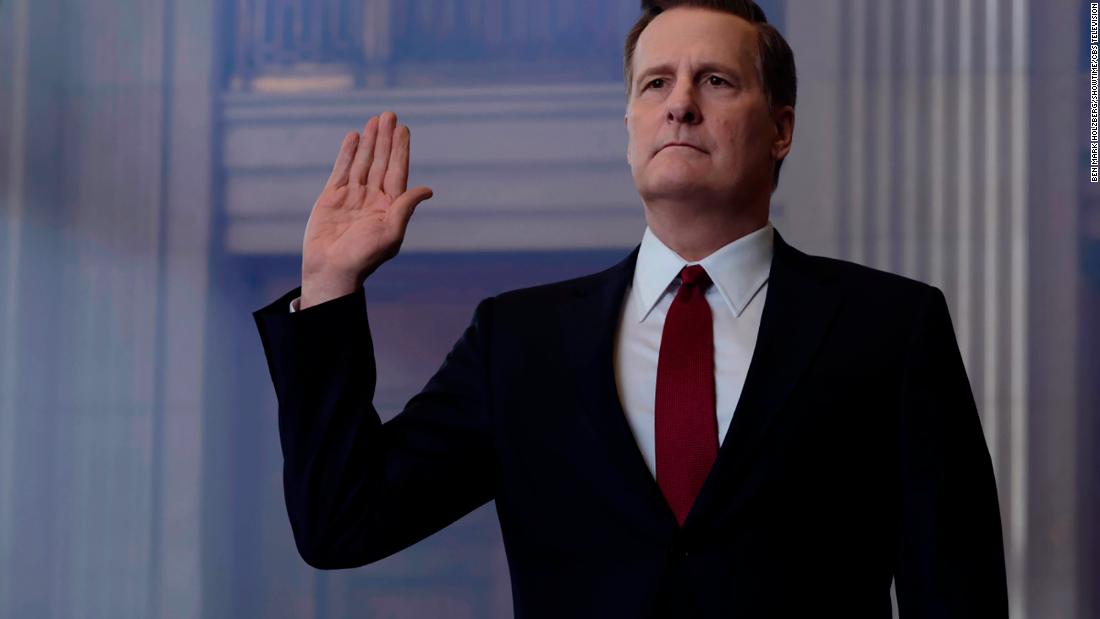 Image copyright
Getty Images / Polydor
Image caption
Dolly Parton and Raye: Don't take away their men
Image copyright
Getty Images / Polydor
Image caption
Dolly Parton and Raye: Don't take away their men
Heartbreak is the foundation of pop music.
Whether it results in the bruised desperation of Sinead O'Connor's Nothing Compares 2U, or the righteous fury of Adele's Rolling In The Deep, nothing lights the spark of creativity faster than the flames of love flickering out.
At this point, there aren't many fresh approaches to the topic - but Dolly Parton's Jolene takes a more unusual approach. Instead of shedding tears or vowing revenge, Parton's song is about two women: The mistress who holds the power, and the wife who is begging her to relinquish it.
The song's been covered more than 30 times, including a fantastically messy version by The White Stripes, but the storyline has rarely been imitated... until now.
Last year, pop singer Raye found herself in the same situation as Parton and the red-headed bank clerk who flirted with her husband in the 1960s. There was just one difference: The Queen of Country got her man back. Raye wasn't so lucky.
"Somebody came along and whisked him away from my grasp," she tells the BBC. "My heart was broken for a hot little second."
Heading into the studio, she tried to capture "that feeling of panic you have when you know you're losing someone" in a song.
The result is Natalie Don't - a funky, modern successor to Parton's classic. Jolene even gets a namecheck in the bridge, while the music makes subtle nods to I Will Survive and Unbreak My Heart.
Despite the subject matter, Raye is buzzing about the single.
"This is the reason I love music - because every negative thing becomes something beautiful," she says. "Making the song I just remember jumping around the studio like a kangaroo on Red Bull.
"It's really light and fluffy. A sad concept over a really funky bassline. I feel I've stumbled on a sound."
That last statement is surprising, because Raye isn't exactly short on hits.
The singer, born Rachel Keen in 1997, scored her first top five single in 2016 with You Don't Know Me, and has gone on to work with everyone from Stormzy and David Guetta to Beyoncé.
Last year, she won a prestigious songwriting honour at the BMI Awards; and she's currently in the top 10 with the Regard collaboration Secrets.
But the 22-year-old has been on a steep learning curve since her first EP came out six years ago.
In an early interview, she told BBC 1Xtra that she "had to evolve and compromise in order to find an audience" - but that meant straying from the Lauryn Hill and Jill Scott albums that inspired her towards a more club-orientated sound.
As a "young, vulnerable, inexperienced woman" in the music industry, she says, "you are guided by everyone around you, maybe unintentionally, to look at everything that is successful and be like it".
"People are scared behind the scenes to do something different. Because it's a business, risk is negative. And I was swayed left and right trying to keep those people happy.
"I went through a lot of different hairstyles, a lot of different clothes, a lot of different stylists going, 'I don't know what I am. Where do I fit in?'
"My label said I needed to have a look, I needed to have something consistent. And then I found it. It's just me."
You can not only hear the transformation in her music - which now combines her love of dance music with those classic soul influences - but you see it in her appearance. Over the last year, Raye has ditched the hoodies and bleached curls that characterised her early press shots, in favour of vintage dresses and short brown hair that's swept back into Hollywood waves.
"I feel like I'm ready and the music's ready," she smiles. "It's been a long time coming."
Image copyright Getty Images Image caption Raye: "A lot of writing rooms I find myself walking into, even today, it's four guys and just me"The singer's confidence comes from a position of power. After six years, she's written enough hits (for herself and others) to shun bad advice.
She's also using her influence to change the dynamic in writing rooms and recording sessions - which, she says, are still predominantly "male-oriented".
'He tried to put his hand between my legs'
Recently, she's teamed up with a recording engineer called Jenna Felsenthal, who she met while working on Beyoncé's Lion King album, and now accompanies her on every job.
"Jenna's super-talented and we really clicked," enthuses the singer. "So I said, 'Would you be down to engineer for me when you have off days?' And she said, 'I'm down to do it full time'.
"I just love getting women involved, especially in roles where they're not predominant - like the tech side and the engineering side. It's really important to be employing women in these positions as much as possible."
Distressingly, she has first-hand experience of what can happen when young women are abandoned in studios with male collaborators.
When she was just 17, Raye was flown to Los Angeles to work with an A-list producer who started acting "weird" and "erratic".
"I'm thinking; 'What the hell have I walked into?'" she told the i Newspaper in 2018. "Next thing I know... he tries to put his hands in between my legs.
"I called my manager and left straight away. Then I cried and cancelled my session the next day. But this happens to girls in studios all the time. All the time."
Image copyright Getty Images Image caption As well as writing and performing, the singer produces many of her own songsThose experiences inspired another song, Ice Cream, which - aside from a few live performances - remains unreleased.
"He should have been arrested, goddamn," sings Raye over simple piano chords. "Everything he did left me in a ruin."
"Every time I perform that song, I cry my eyes out," says the singer. "Not only for me, but for the injustice. Almost every woman I know, every girl I know, has encountered some sort of sexual abuse,
"I've seen people thriving, getting straight As, who go to being unable to turn up to school. It's so messed up."
As with Natalie Don't, Raye used the song to turn an "ugly and horrible" situation into a positive.
The chorus is defiant and resilient: "I'm a brave, strong woman - and I'll be damned if I let a man ruin how I walk, how I talk, how I do it".
"It took me a long time to be able to be strong enough to write that," says Raye.
"It's hard to talk about - but if we don't talk about it, then people aren't becoming aware. It's the same thing that's happening with Black Lives Matter."
'Light skin privilege'
Indeed, the singer has been equally vocal about the resurgent civil rights movement in recent weeks, directing scathing messages towards people who utter the phrase "all lives matter", and discussing her experiences as a light-skinned woman of Ghanaian-Swiss-English heritage.
The issue of "light skin privilege" isn't one that receives a lot of attention in the mainstream media - and Raye felt it was important to address how it affected her while growing up in Croydon in South London.
"I used to have really thick, curly black hair at primary school, and I used to feel un-pretty because the boys would fancy the girls with blonde hair and blue eyes," she says.
"I actually dyed my hair blonde because of that, which is kind of crazy.
Image caption The star's new EP is due to be released later this year"But then I went to high school and they'd call us 'lighties'. I'd hear boys saying to my friends, 'You're pretty for a black girl,' but because I had lighter skin I would experience a privilege that my black friends did not.
"So it would be easy for me to sit there and be like, 'Black Lives Matter and I'm black,' because I do identify with my black heritage. My grandma raised me, she's black African with a thick accent, speaks Twi around the house, cooks Jollof rice. I really identify with my black culture.
"However, it would be unfair of me to not acknowledge that, although I've had a lot of unfortunate things happen to me because of the colour of my skin, it's nowhere near as bad as what I've seen my black family and my black friends experience."
Prejudice towards lighter skin is still rife in the music industry, she adds.
"There are only a very, very few dark-skinned women in positions of real influence like SZA and Nao and Normani," she says.
"So when a black woman is rising, we have to do everything to support them and champion them and give them platforms to be huge."
Such messages of feminism and empowerment have underpinned several of Raye's singles - "Time is money, so don't mess with mine," she sings on You Don't Know Me - but her next EP will be focusing solely on affairs of the heart.
"It is basically a seven-track project about the seven stages of loss," she says.
"It's called Her Heart Beats in 4/4 - and I am very excited about it."
The EP opens with Love Again, a prototypical break-up song written about her ex-partner while she was on tour with US R&B star Khalid last year.
"I was literally crying my eyes out once a week going, 'I wish he was here seeing this, I miss him so much!' It was so pathetic."
The EP moves from that initial shock to denial, guilt and bargaining (Natalie Don't appears here), before entering the final stretch of depression, reconstruction and acceptance, on a song called Walk On By.
"I've been heartbroken for two years and I'm finally out the other side and happy and single," beams the singer.
"It feels amazing."
Follow us on Facebook, or on Twitter @BBCNewsEnts. If you have a story suggestion email entertainment.news@bbc.co.uk.

 5 years ago
799
5 years ago
799 

